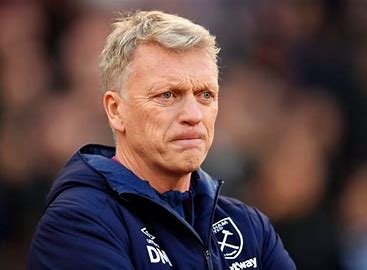
Passionate debate among fans
West Ham United‘s Europa League hopes are in the balance and the result has again ignited a passionate debate among fans highlighting contrasting viewpoints on tactics, player selection, and the overall direction of the team under manager David Moyes.
For some fans, the match embodied the familiar blueprint of Moyes‘s away tactics – a resolute defensive display, prioritizing compactness and minimizing risks. This approach, dubbed “Moyesball,” has earned the manager plaudits for its pragmatism and ability to grind out results on the road.
Passionate debate among fans
Against Freiburg, it seemed to be unfolding according to plan, with West Ham frustrating their opponents for much of the game. A draw, while not ideal, would have kept them firmly in the tie heading back to London.
However, this cautious approach also has its critics. The lack of attacking intent and clear-cut chances left many fans yearning for a more adventurous display. The team appeared content to sit back and absorb pressure, relying on opportunistic counter-attacks. While this tactic has yielded success in the past, against Freiburg, it lacked the necessary punch to trouble the opposition.
The hopes of a hard-fought draw were dashed in the 81st minute when a lapse in concentration proved costly. Edson Álvarez’s misplaced pass deep in his own half was pounced upon by Freiburg substitute Michael Gregoritsch, who slotted home the only goal of the game.
This defensive error served as a stark reminder of West Ham’s vulnerabilities at the back, raising concerns about their ability to withstand sustained pressure in crucial knockout matches.
Adding to the frustration was a debatable late penalty decision that went against West Ham. A shot by Tomas Soucek appeared to strike the outstretched arm of Freiburg defender Noah Weisshaupt inside the box.
After a lengthy VAR check, the referee opted not to award a spot-kick, leaving manager David Moyes and the away crowd visibly upset. While the call was debatable based on recent interpretations of the handball rule, most fans felt it wouldn’t have masked West Ham‘s own shortcomings on the night.
Despite the defeat, a sense of hope still flickers for West Ham fans. Playing at home in the return leg presents a clear advantage, and overturning a one-goal deficit remains a realistic possibility. However, several questions need to be addressed if West Ham are to progress further in the competition.
The biggest concern surrounds the defence. Zouma’s lack of pace and consistency continues to be a source of worry, and a more reliable pairing alongside him is seen as crucial. The return of Aguerd from injury could provide a much-needed boost in this regard.
Additionally, fans are questioning Moyes’s decision to delay the introduction of attacking powerhouse Michail Antonio until the final minutes of the game. A more attacking approach with Antonio from the outset could have potentially altered the course of the match.
The upcoming home leg will be a test for David Moyes. He needs to find the right balance between his customary cautious approach and the need for a more attacking strategy. Striking this balance will be crucial if he wants to guide West Ham past Freiburg and keep their European dream alive.

We concede a goal against the run of play and Moyes decision is to bring on a defensive midfielder, then brings Antonio on with a few minutesl left. can anyone explain this decision!
No Auslander, because very little Moyes does makes sense to us mere mortals…
It’s going to take a rapid start, like we saw against Brentford. Antonio should start, with Kudus left, Bowen right, supported by Paqueta in the 10, and JWP and Alvarez behind.
Personally, I would opt for Soucek in central defence next to Mavro, if Aguerd is unfit. He is great at putting his body on the line, quicker than Zouma and good at heading. Both are awful with the ball at their feet, so no gain there, but you can’t have everything! 🙂
Soucek can come out into CDM, allowing Alvarez to advance, when we’re in possession, bulking out the midfield. But what do I know…?